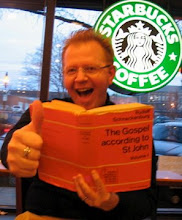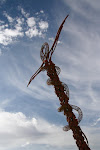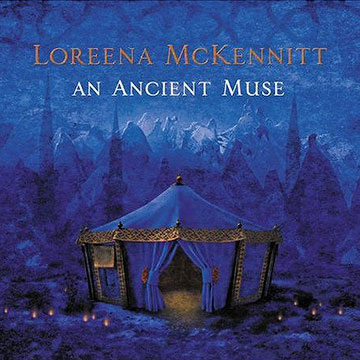
On Oct. 14, one of the world's leading and respected 'Jesus scholars',
N.T. Wright, addressed the Catholic Synod of Bishops, convened in Rome to address the role of the Bible in the Church today. ("
The Word of God in the Life and Mission of the Church"). Read his full remarks,
here:
In particular, I note his mention of the following 'fourfold' reading of Scripture:
We are to love God with heart, soul, mind and strength.1. The heart: Lectio Divina, private meditation and prayer, and above all the readings in the eucharist.2. The mind: historical study of the text and its original contextual meaning. 3. The soul: the ongoing life of the church, its tradition and teaching office. 4. The strength: the mission of the church, the work of God’s kingdom.
In many ways, Wright echoed
the remarks of Pope Benedict on the role of Scripture in the life of the Church, particularly, the relationship between "exegesis" on the one hand, and "theology" on the other. (See John Allen's comments on "the Anglican star" at the Synod,
here.)
The rest of my column today is on Wright himself, and why I believe he is one of the more important biblical scholars today ...
Wright is one of the most beloved scholars of Evangelical Christians - and many Catholics, given his reverence for the Scriptures, his insistence on reading the Bible as inspired and trustworthy, and his work on the person of Jesus in the Gospels. Interestingly, Wright is not an "Evangelical" strictly speaking, though his worldview is very aligned with bible-believing Christians. Wright is an Anglican Bishop (Durham, Great Britain).
Wright is, without question, one of the more prominent and prolific writers / speakers on topics related to Jesus and Scripture. His contributions over the last few decades on all questions related to the New Testament have been just outstanding.
Of all of his scholarly work, perhaps the most significant contribution is his "New Testament and the People of God series" deals admirably and vigorously with the crucial questions pertinent to the study of "the historical Jesus". In three large volumes, Wright addresses:
1) The New Testament and the People of God (vol 1). In
the opening volume, Wright takes up the world of the New Testament and the world "behind" the New Testament ... how the Jewish Christians understood the Jesus story, and how we can step into their world and seek to understand Him. This is a great introductory volume to Wright, as he frames his discussions around key questions we ought to be asking about the New Testament.
2) Jesus and the Victory of God (vol 2). Here, Wright focuses on the identity of Jesus of Nazareth ... Who was he, what was he like, what did he believe about God? How did he understand his own actions in light of the God of Israel? This is a very important volume to "historic Jesus" studies, something Wright has been -- and continues to be invested in. Wright also addresses "Paul" and his prominence in the proclamation of Jesus in early Christianity.
3) The Resurrection of the Son of God (vol 3). Here, Wright explores the world of ideas and beliefs which helped to shape early Christian understandings of death, the afterlife (what Wright calls "life after life after death) and yes, resurrection. Wright argues that we must re-invigorate our Christian understanding of "resurrection" in light of its development in Second Temple Judaism. It is an important contribution in that here, Wright takes on those skeptical scholars who dispute that we can say anything of a historical nature about the resurrection of Jesus. To the contrary, Wright shows how those who argue
so have shown a genuine lack of historical imagination in the best sense of the word. Simply put, such scholars have dismissed the resurrection as a "non-historical event" or, at the very least, a topic that cannot be dealt with by means of historical data. Nonsense, Wright says -- and he argues convincingly that "resurrection" is not only at the very center of the early Jesus movement, but that it can in in fact must be studied historically ... and that in applying the most vigorous and scrutinizing historical standards, the resurrection truly emerges with flying colors.
Yet, Wright , when not occupied with his duties as Bishop, is as well known for his many, many lectures. In fact, there is an unofficial "
N.T.Wright Page", with dozens of his lectures - most, related to Jesus, Paul, Resurrection, and Scripture. The following are three good examples of his thought.
"Jesus and the Identity of God"
"The Resurrection and Christian Origins" (PDF)
"Five Gospels but no Gospel: Jesus and the Seminar"
Personally, there are a number of achievements that might be pointed to among Wright's work. Let me mention three:
1) Wright, the historic Jesus and the Resurrection.First, Wright has produced an impressive body of work in which he argues for the historical reliability of the Bible. He has effectively taken on The Jesus Seminar -- dealing with their questions, and provoking many -- both scholars and non-scholars -- to re-consider the conclusions of biblical skepticism.
Wright has maintained fruitful and lively discussion with Marcus Borg and Dominic
Crossan, not only critiquing the many problems with their arguments, but offering fresh, coherent and convincing arguments from a sound and "believing" Christian worldview. Wright has not only demolished many of the suppositions of the Jesus Seminar, but he has refocused the study of Jesus, and in particular, his resurrection, on biblical and historical footing.
2) Jesus, Paul and the End of the Exile. Another key contribution of Wright concerns the theme of "exile" for understanding the whole biblical narrative, both Old and New
Testaments. Some consider his contributions to be the most important since Albert Schweitzer, the early twentieth century Jesus scholar, and author of
The Quest for the Historic Jesus.
Wright claims that Second Temple Jews considered themselves as "still in exile", even though the return from Babylon to Judea had begun in 539 B.C. In particular, he argues that Jews in this time period had understood "exile" more figuratively, and not literally. This is because historical study of Second Temple Judaism has shown that though a return from Babylon had
begun in 539 (in three waves), many more did not return. Moreover, even the remnant that did return knew full well that the political deliverance from Hellenistic overlords -- and later, the Romans -- was still in waiting. In other words, though the literal exile was over alright, most Jews awaited a "true end of the exile", in which God himself would intervene "in the middle of history", and restore Israel to himself once and for all.
Central to his thesis is eschatology, and the notion that this redemption would come through a period of intense suffering and tribulation. As Wright argues: "Such suffering and punishment would ... somehow hasten the moment when Israel's tribulation would be complete, when she would finally have been purified from her sin
so that her exile could be undone at last" (
Jesus and the Victory of God, 591). Wright believes Jesus viewed his own life -- and suffering and death -- as an act of
eschatological redemption, in light of these hopes. So, for Wright, Jesus intentionally "stepped into this story", in which Yahweh would vindicate his people, ushering in an era of new creation and new life, i.e. the Kingdom of God.
One may 'quibble' with Wright's emphases: on the exile, his understanding of eschatology, how Jesus understood Israel's story and His story in light of it ... yet, his contributions to gospel studies cannot be disputed. Along the same lines, Wright has re-invigorated Pauline studies, in light of his
eschatological thesis (above). Again, whether one agrees or disagrees about his perspective, one cannot deny that he has re-invigorated our study of Paul, emerging as one of the leading voices calling for a "new perspective" on Paul.
NOTE: For a very fine critique of Wright -- and one I happen to agree with, see
Dr. Brant Pitre's "
Jesus, the Tribulation, and the End of the Exile: Restoration Eschatology and the Origin of the Atonement".
Pitre, a Catholic scholar, examines Wright's understanding of 'exile" and, while finding much that is commendable, offers a richer understanding of its meaning, and its biblical implications in a fine volume.
3) Wright and non-academics. One final (but nonetheless important) contribution of Wright's should be noted. Wright has managed to keep one foot in the "guild" (i.e. biblical scholarship) and one in the "pew". That is, Wright has continued to argue, as has Pope Benedict in
Jesus of Nazareth, that "authentic Christianity has nothing to hear from history", and that we must encounter the Word of God
incarnationally, as the living Word took on flesh "and dwelt among us" (John 1:14).
Wright has done an exception job of taking on the academic positions of anti-supernatural bias. He's a leading scholar in the field of historic Jesus studies, erudite and accomplished. A skilled debater. A scholar's scholar. Yet, he has also done a great deal to advance an interest in Jesus & The Bible for the non-technical and new student of Scripture. He has a whole series of New Testament commentaries, for example, that are intended 'for everyone', no matter one's background ("
Mark for Everyone", "
Luke for Everyone", etc.) . These are written for the person in the pew, and are quite helpful. Similarly, Wright has given a number of speeches and written a number of books that are very akin to the aspirations of
C. S. Lewis. Interestingly, some titles have a
Lewisian ring: "
Simply Christian: Why Christianity Makes Sense" (Cf. Lewis' "
Mere Christianity") and "
Surprised by Hope: Rethinking Heaven, the Resurrection, and the Mission of the Church" (cf. Lewis' "
Surprised by Joy"). Similarly, Wright has taken on ailments such as the popular
Da Vinci Code and dealt with it very neatly (
here, for example). Finally, Wright's emphasis on the believability of Jesus and Christianity, the trustworthiness of the Bible and miracles, and the importance of acting on one's Christian faith today and living joyfully with God are all very commendable.
In short, there is much to appreciate about biblical scholar N.T. Wright and it was good to see -- and hear from him at the Synod. Again, you may read his Wright's full remarks to the Synod of Oct. 14
here.













